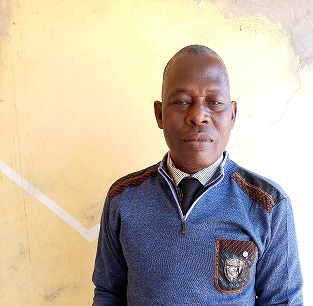Oyetade Michael Oyebowale
@unilorin.edu.ng
Lecturer, Faculty of Arts
Lecturer, Faculty of Arts
University of Ilorin, Ilorin
I am a Senior lecturer with specialization in the language and literature of the New Testament
EDUCATION
i. Ph.D (Christian Studies), University of Ilorin -2011
ii PGDE, Usman Dan Fodio University, Sokoto -2007
iii. M.A (Christian Studies), University of Ilorin -2003
iv. B.A. (Religious Studies), University of Ibadan -1998
v. Diploma in Religious Studies (DRS), University of Ibadan, -1995
vi. Senior School Certificate West African Examination Council -1993
vii . Ordinary Level, General Certificate Examination 1991
RESEARCH, TEACHING, or OTHER INTERESTS
Religious studies, Arts and Humanities
Scopus Publications
Scholar Citations
Scholar h-index
Scopus Publications
Dr M.O. Oyetade and Esther Adeola Femi-Olubiyi
Africajournals
Over the last few decades, several problems have been militating against Nigeria as a nation. This is because Nigeria is a mixture of many ethnic groups and diverse religious orientations. Those problems range from the religious crisis, poverty and ethnocentrism to socio-economic, political and academic issues. The objective of this paper is to unearth the havoc ethnocentrism has caused socially, economically, politically, educationally and religiously in Nigeria. The study employed a historical and exegetical approach as its methodology. The paper found that ethnicity and religion are key issues in national integration that political elites use to camouflage their incompetency, corruption, leadership failure and loss of political interest. The consequences are various ethnic conflicts, prejudices, religious crises, insecurity and agitation for separation and secession which do not augur well for national integration and development. Paul the Apostle in Romans. 9:25-26 presents a theological thought that could serve as a panacea as to how a heterogeneous Nigerian society can be integrated with people of different races and social classes peacefully. The paper concludes that the nation should apply the principle that delights to take those who are "not my people" and make them "my people" to achieve national integration in Nigeria. The paper, therefore, recommended restructuring the federal system of government, driving equity and fair distribution of appointments, placing less emphasis on religion and ethnicity on official documents and harvesting sports solidarity for national integration to give way for development to thrive at the state and local levels and permeate all-inclusive living theology.

